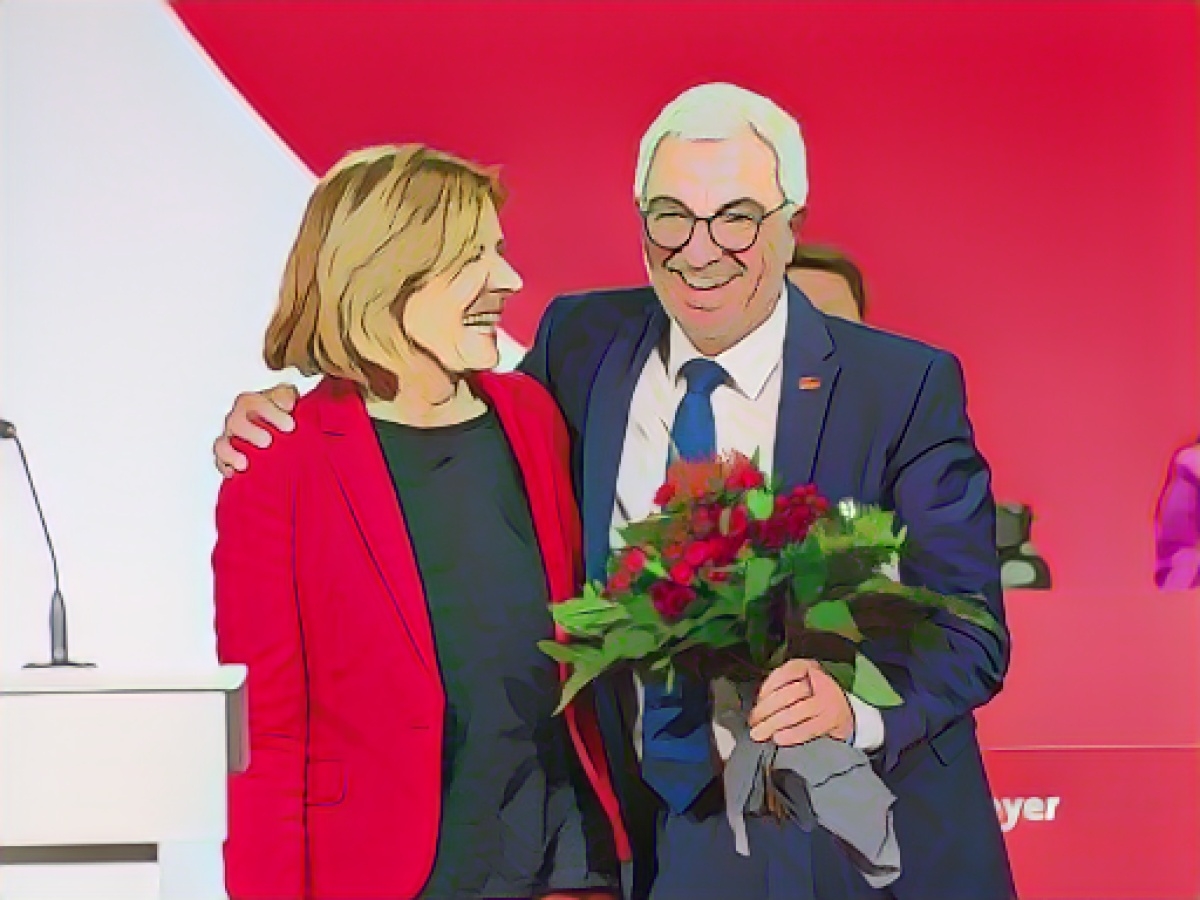Bringing the AfD Under Scrutiny: Malu Dreyer's Call for Clarity
In a passionate speech at the SPD state party conference in Mainz, Malu Dreyer, the Minister President of Rhineland-Palatinate, urged the crowd to express the true nature of the Alternative für Deutschland (AfD) party. The call to action stemmed from Dreyer's belief that an outcry alone isn't enough to counteract the impact of the right-wing party; instead, people must communicate what the AfD truly represents.
"We must tell people what the AfD actually stands for," Dreyer asserted. This necessity stems from the observation that, while many people recognize the AfD as a right-wing extremist party, they often lack a clear understanding of its specific ideologies. Dreyer's plea served an important purpose, aiming to refute the misconception that the AfD's right-wing extremist reputation is merely a popular stereotype.
The AfD—operating on a profoundly different political spectrum—has been criticized for its strong links to populist speech and the Putin dictatorship, as well as its opposition to a united Europe and NATO. The party's policies have also led to proposals that would result in significant economic losses, including the elimination of hundreds of thousands of jobs and the detrimental impact on Germany’s business location, such as Rhineland-Palatinate, which is an export-dependent state.
Dreyer underscored one specific policy position that has drawn attention: the AfD's stance against mainstream education for disabled children. This policy has been widely criticized for its potential to exacerbate social inequalities, as it could lead to further segregation of disadvantaged groups from mainstream society.
The Social Democratic Party (SPD) has consistently expressed its opposition to the AfD, positioning itself as a champion of a fair welfare state, strong unions, and inclusion of all groups, including foreigners and homosexuals. As a contrast to the AfD's divisive approach, the SPD epitomizes the values of tolerance and unity, as espoused in their policies.
Criticisms of the AfD have included accusations of xenophobia, discrimination, and hostility to climate change, the European Union, and NATO, among other controversial beliefs and actions. The SPD and the Green youth wings have further denounced the AfD for promoting right-wing extremist, racist, and antidemocratic policies.
In light of these criticisms, Dreyer's call for the dissemination of knowledge about the AfD's policies is crucial in maintaining a balanced dialogue and preventing the further spread of polarizing ideologies within German society. By educating the public, the SPD can promote a more comprehensive and informed understanding of the opposing party's positions, empowering citizens to make decisions based on accurate information.
Enrichment Insights:
The AfD has been a centerpiece of political discourse due to its polarizing stance on several issues. Their extreme positioning extends beyond immigration and isolationism, with criticisms of their anti-Islam sentiments, climate change denial, and euroscepticism also drawing attention.
- Anti-Islam Sentiment: The AfD's close ties to far-right groups and individuals, along with their statements condemning Islam, have led to widespread accusations of xenophobia and discrimination towards the Muslim community.
- Climate Change Denial: Similar to other right-wing political groups around the world, the AfD rejects the scientific consensus on climate change, advocating for the removal of wind turbines and calling global warming a hoax.
- Euroscepticism: The AfD holds a critical stance towards the European Union, advocating for the German exit from the union and the return of the Deutsche Mark. Their vision of a purely German economy is thought to be aimed at diminishing the EU's influence on German policies.
- Anti-NATO and Anti-Ukraine Stance: The AfD's criticism of NATO, their pacifist approach, and their pro-Russian tendencies have raised concerns within the international community. Their position on the Ukrainian conflict and the halt of arms deliveries to Ukraine has amplified their reputation as a potential threat to democracy and security within Europe.
- Criticism of the Coalition Government: The AfD has criticized the current German government, specifically targeting the Social Democrats and the Green Party, for their handling of migration and their perceived detrimental impact on German society. Their attacks on the coalition have further strained international relations, reflecting the party's commitment to their divisive ideologies.








